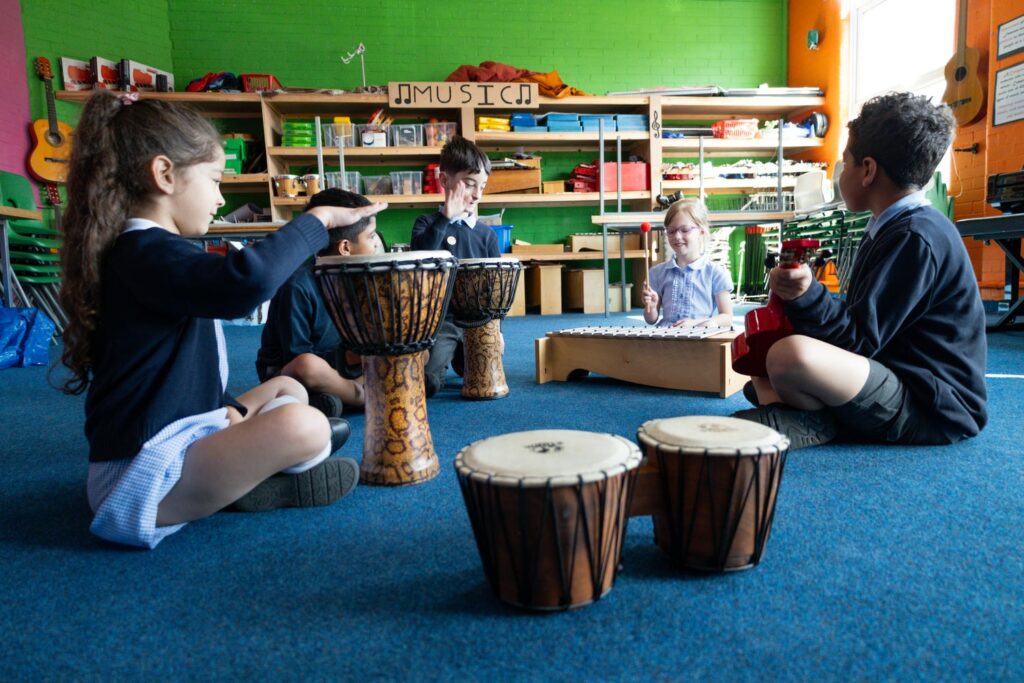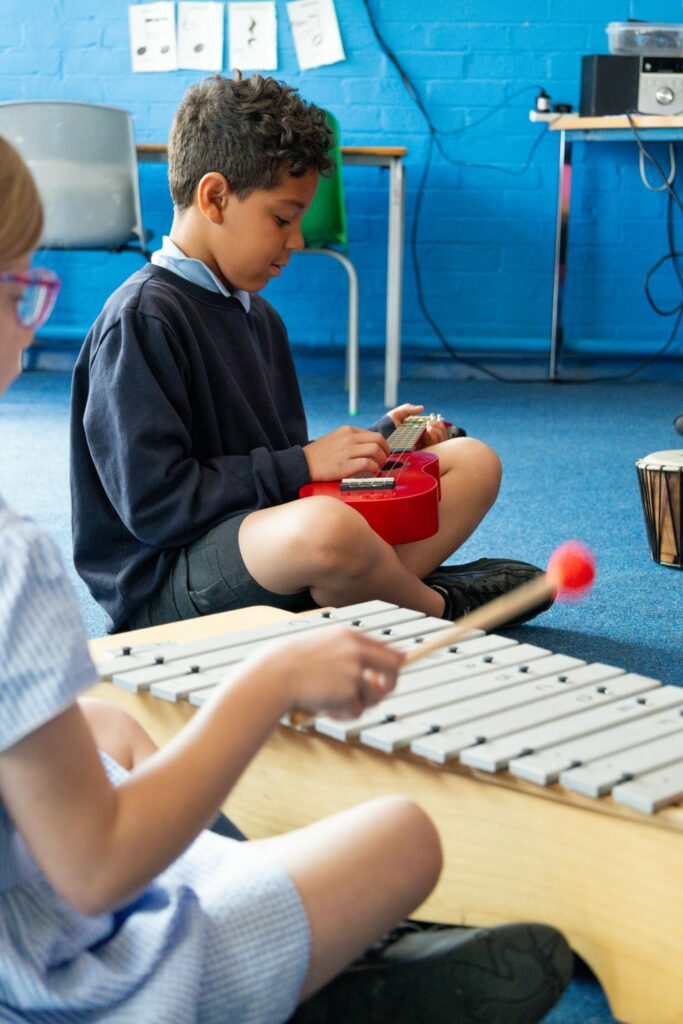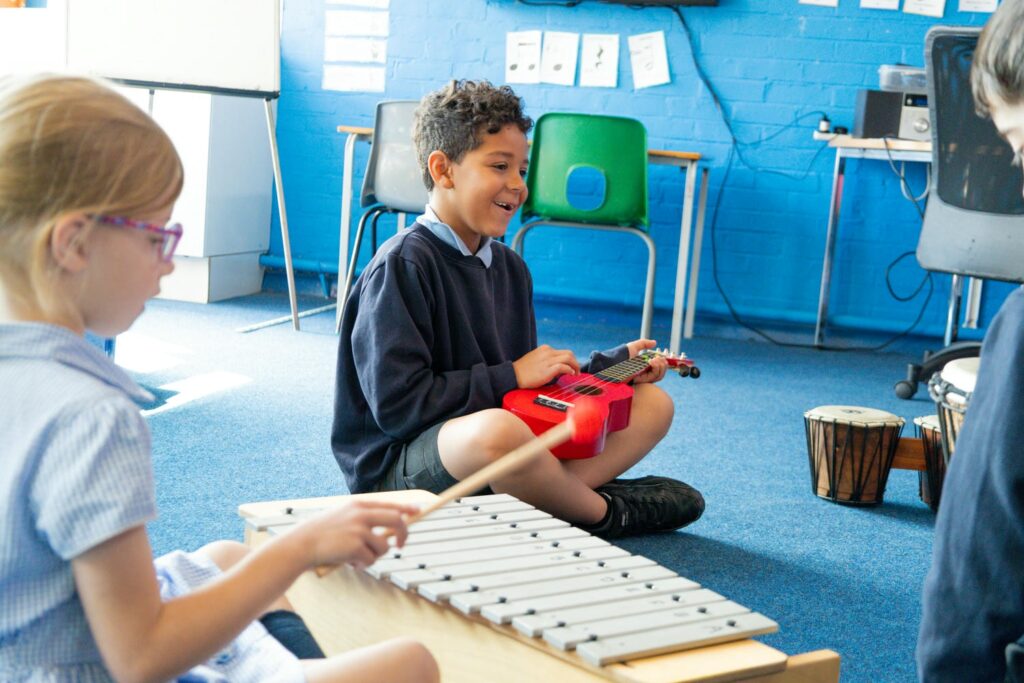Music
Intent
At St Anne’s, we follow the Sing Up Music Curriculum. Sing Up provides children with an engaging, practical and high-quality curriculum. All children are enabled to develop the self-confidence, skills, knowledge and understanding to develop a lifelong love of music whilst also developing a secure foundation from which they can take their study of music further.
Catholic Ethos, Catholic Social Teaching
We believe
- in the dignity of the human condition. This means every child has their own talents which they should be given the opportunity to explore and develop. Many of our children love to develop their musical talents through singing, playing an instrument and composing.
- that the common good is built through music. Listening to pieces of music in different styles and from across the ages is a really positive experience that brings people together.
- that exposing children to music from around the world builds solidarity; we are one world in music.
We also ensure that the children learn about composers who were themselves members of religious orders like Stephen of Liege and about key pieces of music created for specific moments in the liturgical year for example Handel’s Messiah.
In worship we raise our voices to God in song and we learn to both say and sing traditional prayers of the church.
Implementation
In Reception, KS1 and KS2 Music is delivered by a subject specialist from Berkshire Music Trust.
- 30 mins for Reception per week
- 40 mins for KS1
- In KS2, each lesson lasts 50 mins.
The whole school also take part in Hymn practice for half an hour each Wednesday afternoon.
In Y4, children receive instrumental lessons from a Berkshire Music Trust teacher for one term. In 2023-4, the children had lessons on the cello!
Music lessons are taught in 3 week or 6-week blocks.
6-week units are based around a song and the features of the song. These units include singing and playing, listening as well as some appraising and improvising/composing.
3-week units focus more heavily on listening/appraising or on improvising/composing.
Impact
By the end of KS1 pupils will learn how to:
- use their voices expressively and creatively by singing songs and speaking chants and rhymes
- play tuned and untuned instruments musically
- listen with concentration and understanding to a range of high-quality live and recorded music
- experiment with, create, select and combine sounds using the inter-related dimensions of music
By the end of KS2 pupils will learn how to:
- play and perform in solo and ensemble contexts, using their voices and playing musical instruments with increasing accuracy, fluency, control and expression
- improvise and compose music for a range of purposes using the inter-related dimensions of music
- listen with attention to detail and recall sounds with increasing aural memory
- use and understand staff and other musical notations
- appreciate and understand a wide range of high-quality live and recorded music from different traditions and from great composers and musicians
- develop an understanding of the history of music.



